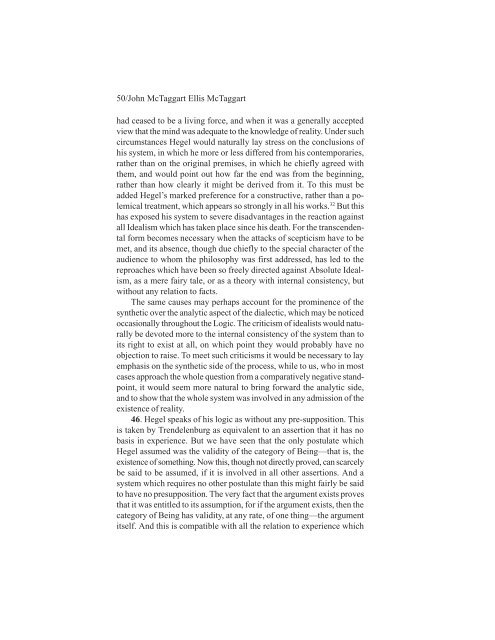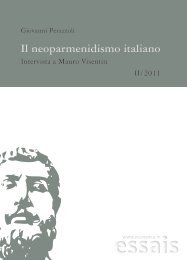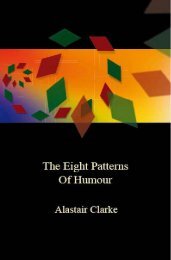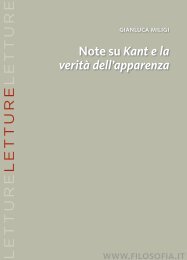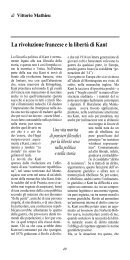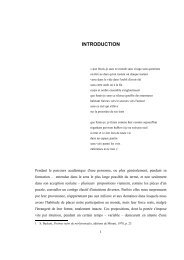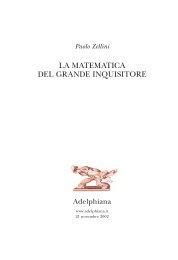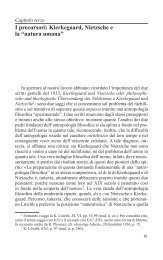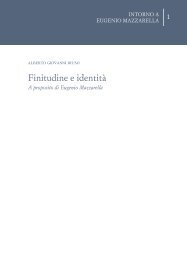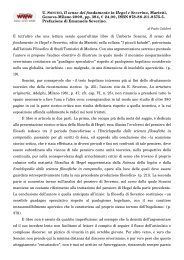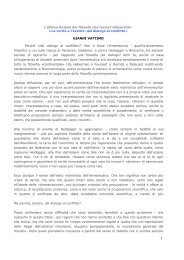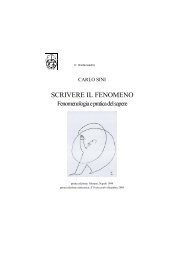McTaggart, Studies in the Hegelian Dialectic
McTaggart, Studies in the Hegelian Dialectic
McTaggart, Studies in the Hegelian Dialectic
Create successful ePaper yourself
Turn your PDF publications into a flip-book with our unique Google optimized e-Paper software.
50/John <strong>McTaggart</strong> Ellis <strong>McTaggart</strong><br />
had ceased to be a liv<strong>in</strong>g force, and when it was a generally accepted<br />
view that <strong>the</strong> m<strong>in</strong>d was adequate to <strong>the</strong> knowledge of reality. Under such<br />
circumstances Hegel would naturally lay stress on <strong>the</strong> conclusions of<br />
his system, <strong>in</strong> which he more or less differed from his contemporaries,<br />
ra<strong>the</strong>r than on <strong>the</strong> orig<strong>in</strong>al premises, <strong>in</strong> which he chiefly agreed with<br />
<strong>the</strong>m, and would po<strong>in</strong>t out how far <strong>the</strong> end was from <strong>the</strong> beg<strong>in</strong>n<strong>in</strong>g,<br />
ra<strong>the</strong>r than how clearly it might be derived from it. To this must be<br />
added Hegel’s marked preference for a constructive, ra<strong>the</strong>r than a polemical<br />
treatment, which appears so strongly <strong>in</strong> all his works. 32 But this<br />
has exposed his system to severe disadvantages <strong>in</strong> <strong>the</strong> reaction aga<strong>in</strong>st<br />
all Idealism which has taken place s<strong>in</strong>ce his death. For <strong>the</strong> transcendental<br />
form becomes necessary when <strong>the</strong> attacks of scepticism have to be<br />
met, and its absence, though due chiefly to <strong>the</strong> special character of <strong>the</strong><br />
audience to whom <strong>the</strong> philosophy was first addressed, has led to <strong>the</strong><br />
reproaches which have been so freely directed aga<strong>in</strong>st Absolute Idealism,<br />
as a mere fairy tale, or as a <strong>the</strong>ory with <strong>in</strong>ternal consistency, but<br />
without any relation to facts.<br />
The same causes may perhaps account for <strong>the</strong> prom<strong>in</strong>ence of <strong>the</strong><br />
syn<strong>the</strong>tic over <strong>the</strong> analytic aspect of <strong>the</strong> dialectic, which may be noticed<br />
occasionally throughout <strong>the</strong> Logic. The criticism of idealists would naturally<br />
be devoted more to <strong>the</strong> <strong>in</strong>ternal consistency of <strong>the</strong> system than to<br />
its right to exist at all, on which po<strong>in</strong>t <strong>the</strong>y would probably have no<br />
objection to raise. To meet such criticisms it would be necessary to lay<br />
emphasis on <strong>the</strong> syn<strong>the</strong>tic side of <strong>the</strong> process, while to us, who <strong>in</strong> most<br />
cases approach <strong>the</strong> whole question from a comparatively negative standpo<strong>in</strong>t,<br />
it would seem more natural to br<strong>in</strong>g forward <strong>the</strong> analytic side,<br />
and to show that <strong>the</strong> whole system was <strong>in</strong>volved <strong>in</strong> any admission of <strong>the</strong><br />
existence of reality.<br />
46. Hegel speaks of his logic as without any pre-supposition. This<br />
is taken by Trendelenburg as equivalent to an assertion that it has no<br />
basis <strong>in</strong> experience. But we have seen that <strong>the</strong> only postulate which<br />
Hegel assumed was <strong>the</strong> validity of <strong>the</strong> category of Be<strong>in</strong>g—that is, <strong>the</strong><br />
existence of someth<strong>in</strong>g. Now this, though not directly proved, can scarcely<br />
be said to be assumed, if it is <strong>in</strong>volved <strong>in</strong> all o<strong>the</strong>r assertions. And a<br />
system which requires no o<strong>the</strong>r postulate than this might fairly be said<br />
to have no presupposition. The very fact that <strong>the</strong> argument exists proves<br />
that it was entitled to its assumption, for if <strong>the</strong> argument exists, <strong>the</strong>n <strong>the</strong><br />
category of Be<strong>in</strong>g has validity, at any rate, of one th<strong>in</strong>g—<strong>the</strong> argument<br />
itself. And this is compatible with all <strong>the</strong> relation to experience which


